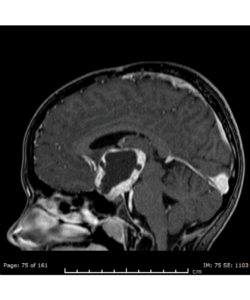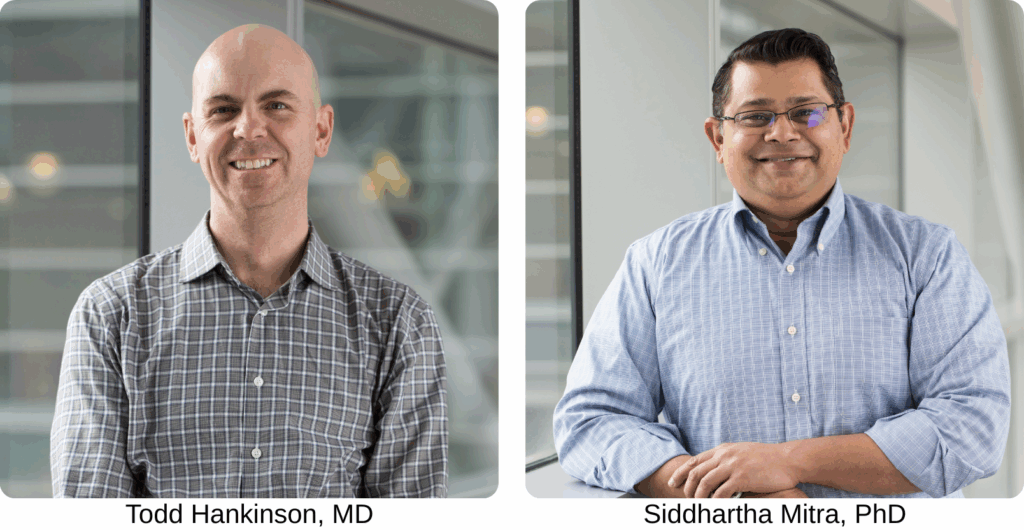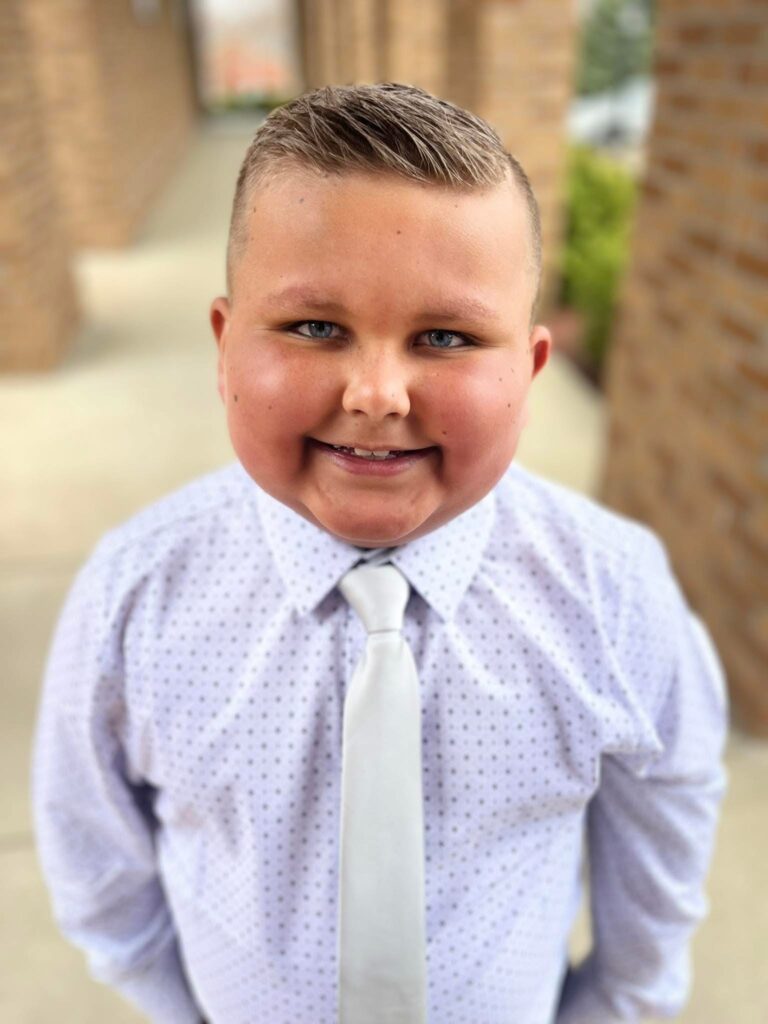
Advancing Craniopharyngioma research with a novel approach
Because of the continued support of our donors, we’ve been able to fund Dr. Todd Hankinson’s research into breakthrough therapies for Craniopharyngioma (a rare pediatric brain tumor) for years. Today, we’re proud to help further support his work.
What is Craniopharyngioma?
Craniopharyngioma is a rare type of pediatric brain tumor that typically affects kids under the age of 14. It is slow-growing and most often occurs at the base of the brain behind the eyes near the pituitary gland.
Because of its location within the brain, kids with craniopharyngioma often experience a wide range of devastating symptoms, including vision loss, cognitive impairment, obesity, delayed puberty, abnormally slow growth, anxiety, and much more. The standard treatment for craniopharyngioma is surgical resection to remove as much of the tumor as possible, with or without radiation therapy. Craniopharyngioma patients have some of the poorest quality of life among kids with brain tumors.

You helped fund the first ever Craniopharyngioma breakthrough
Dr. Hankinson’s work (funded by The Morgan Adams Foundation) led to a new clinical trial for a combination treatment of a drug called tocilizumab with a MEK inhibitor (a drug that blocks a specific protein believed to cause cancer cell growth). This trial proved to be a game-changer for kids with Craniopharyngioma. It has proven to significantly slow tumor growth – and provides a treatment path forward that doesn’t include the dangers of repeat brain surgeries or radiation.

Today, you’re helping fund a project that positions our Craniopharyngioma research at the forefront of neuro-oncology innovation
A new project led by Dr. Todd Hankinson and Dr. Siddhartha Mitra, focuses on refining organoid models derived from Craniopharyngioma patient tumors. Organoids are three-dimensional systems that are grown in the lab from tissue. They will provide an innovative bridge to understanding the complexities of the tumor’s biology – and prove to powerful tool for testing innovative therapies. The researchers aim to establish reliable methods for preserving these organoids, ensuring their long-term viability and functionality for future research. In doing so, this research will enable on-demand preclinical drug testing and facilitate collaboration between institutions. This work is truly novel in pediatric cancer research. And together with our donors, we are incredibly proud to help support it!
Want to learn more about the science behind this and other studies you’re helping to fund?
Learning more about the lives you’re supporting
Meet Austin, diagnosed with Craniopharyngioma at 10 months old
At just 10 months old, Austin was diagnosed with a craniopharyngioma brain tumor. Austin was a fussy, restless baby whose head kept growing larger and larger. An ultrasound showed an enlarged third ventricle, so Austin’s parents were referred to a neurologist. Before that appointment could happen, Austin’s eyes rolled into the back of his head, and he started vomiting. He was rushed to the emergency room and an MRI showed a brain tumor.
Through 3 brain surgeries and 30 rounds of proton radiation, Austin’s determination never wavered. Then, a ray of hope appeared in the form of Dr. Hankinson at Children’s Hospital Colorado, offering a clinical trial specifically tailored for craniopharyngioma patients. Since then, Austin’s tumor has been brought under control, illuminating a path forward for other kids with craniopharyngioma.
This research gives his parents so much hope that Austin can continue to keep his eyesight, that he doesn’t have to have any more surgery or radiation, and keep his tumor controlled!
Austin’s journey is a testament to the incredible impact of research and innovative treatments. Now, more than ever, their family is committed to supporting the fight against pediatric cancer. They have partnered with The Morgan Adams Foundation to help raise money to support Dr. Hankinson’s Craniopharyngioma research.

Want to learn more about the science behind this and other studies you’re helping to fund?